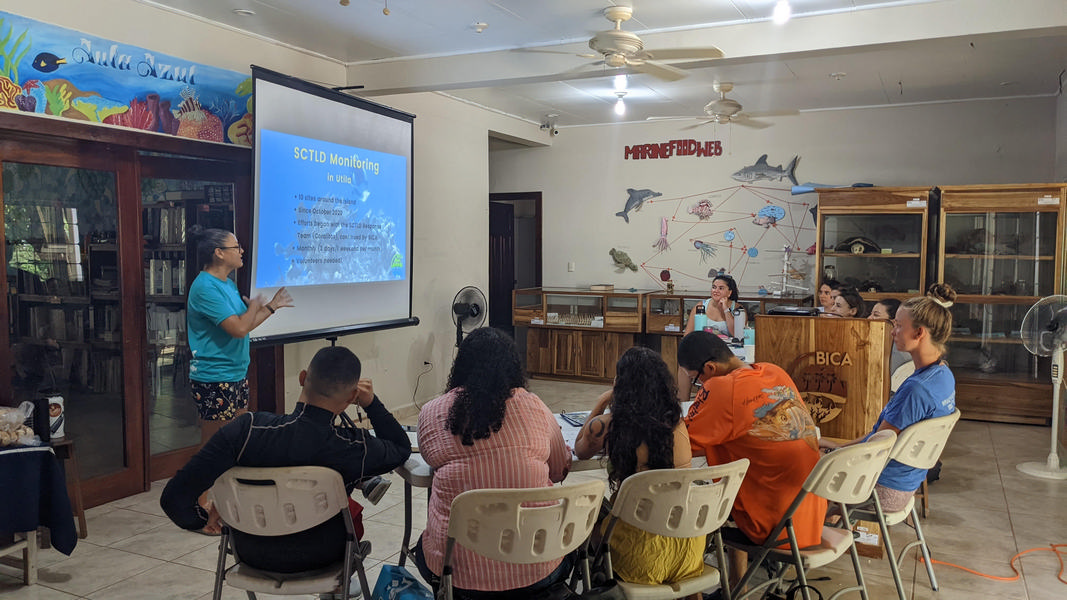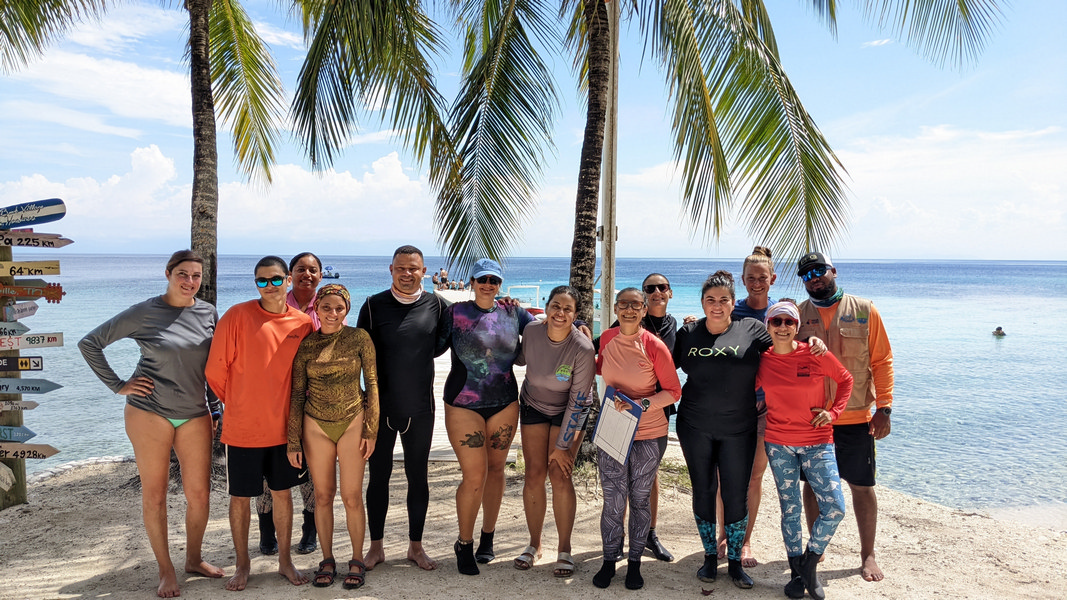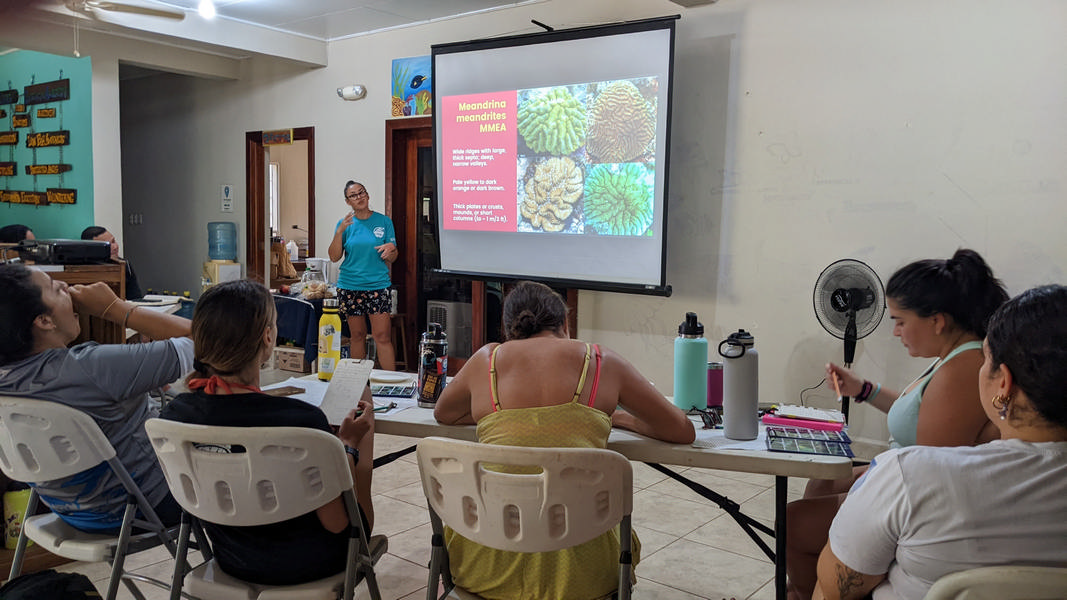Written by: Valeria Valladares and Caitlin Chock
1. Introduction
Stony Coral Tissue Loss Disease (SCTLD) is a new and deadly disease that affects over 25 species of reef-building stony corals. The disease is characterized by rapid tissue loss, high mortality rate, rapid spread, and prolonged duration. It affects species in a specific order, with the most susceptible species experiencing near-total mortality within weeks to months. It first appeared in the reefs off of Miami, Florida in 2014 and has continued to spread throughout the Caribbean and the Mesoamerican Reef System (MAR). Currently it is found in 22 countries and territories including Honduras, where it was first reported in September, 2020 in the island of Roatán (Bay Islands National Marine Park). The disease was first reported in the neighboring island of Utila in late June, 2021.
Since October, 2020 to date, BICA Utila has conducted monthly SCTLD monitoring of 10 sites around the island. Thanks to the continuous monitoring, the disease was detected in its early stages and its progression has been followed closely. The monitoring protocol in place is based on recommendations made by MPA Connect in the “Stony Coral Tissue Loss Disease Template Monitoring and Response Action Plan for Caribbean Marine Natural Resource Managers (Version 3).”
SCTLD is a threat that generates an urgent need for response at both national and regional levels. For this reason, the CCAD through the project Integrated Ridge to Reef Management of the Mesoamerican Reef Ecoregion (MAR2R) is supporting the Regional Demonstration Project for the Planning of Actions against the SCTLD, facilitated by MAR Fund in close coordination with the environmental authorities of the four countries of the region. The project aims to carry out actions to attend the threat of SCTLD in the MAR ecoregion and promote governance through capacity building among relevant partners. In response to this alarming new threat, there are ongoing regional efforts to monitor, treat and track SCTLD. These efforts have highlighted the need to establish capacity for SCTLD identification and monitoring in the MAR. For this, MAR Fund, as beneficiary and administrator of the funds granted by MAR2R/CCAD, requires technical support to organize and develop a theoretical and practical workshop for the identification and monitoring of SCTLD in Utila, Honduras, as explained in this document.
2. Objectives
2.1 Organize and develop a workshop in the identification and monitoring of SCTLD in Honduras.
2.2 Increase SCTLD awareness and community engagement in SCTLD tracking.
Please download – Workshop Summary Report of SCTLD in:
Link : Click






